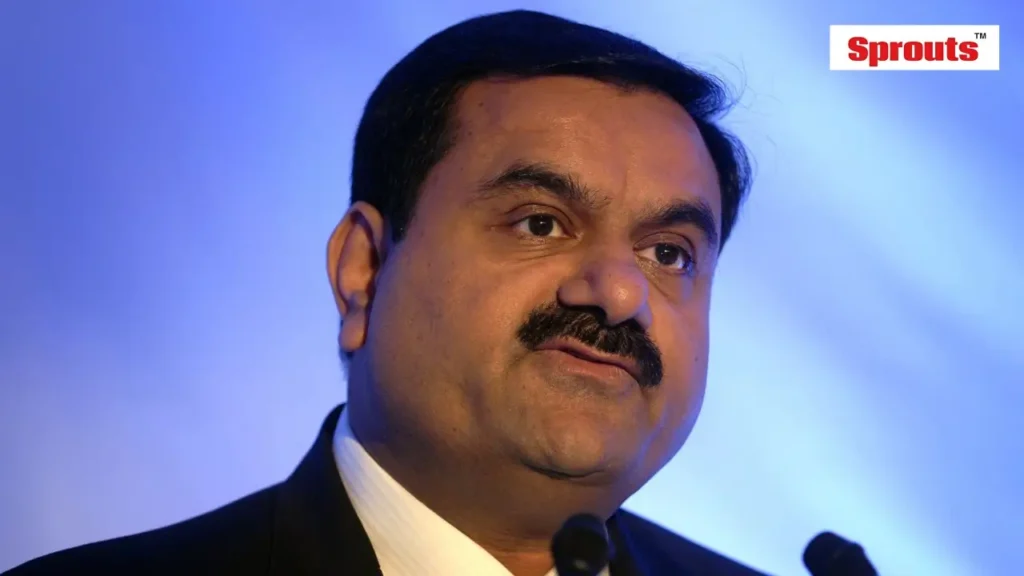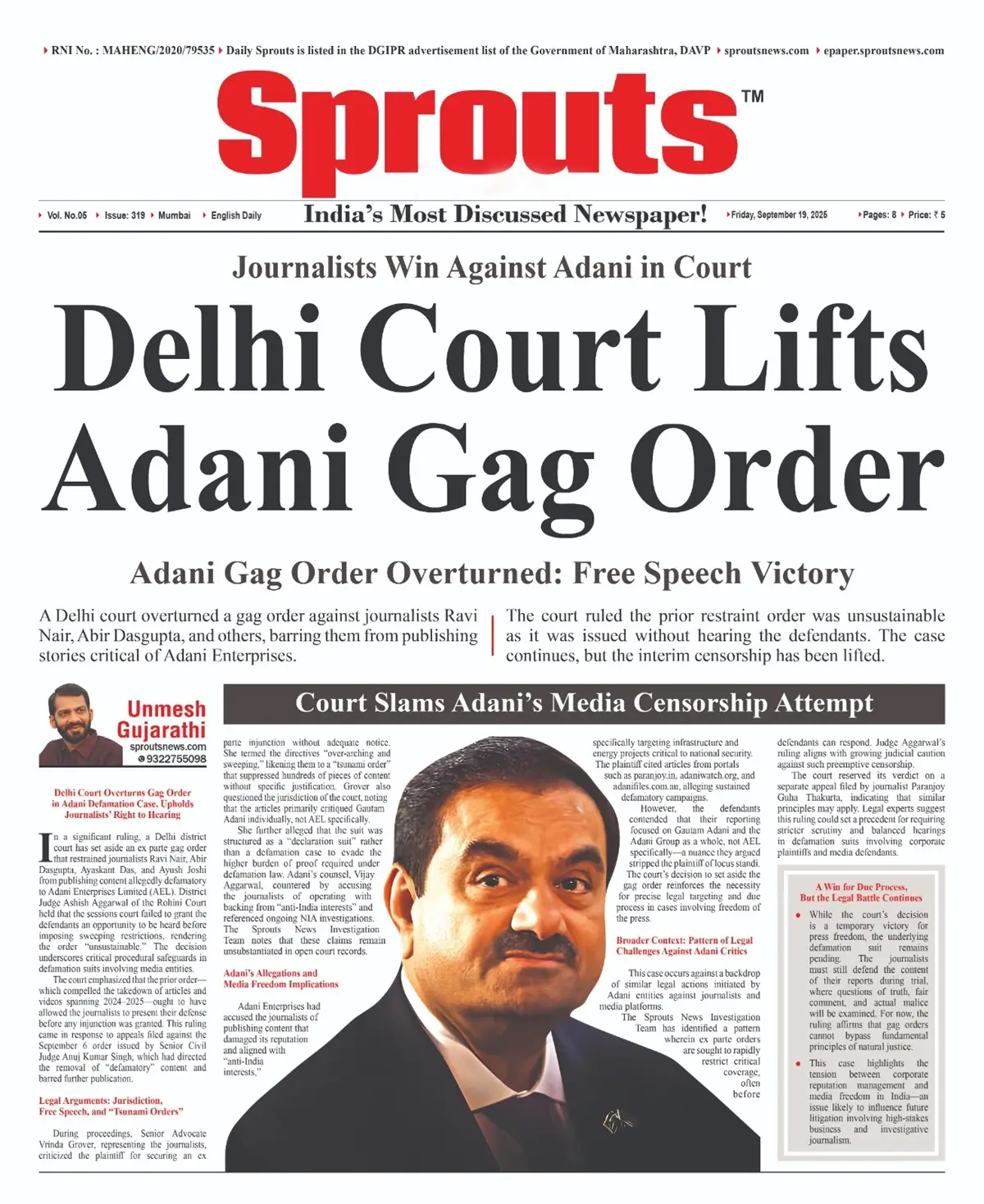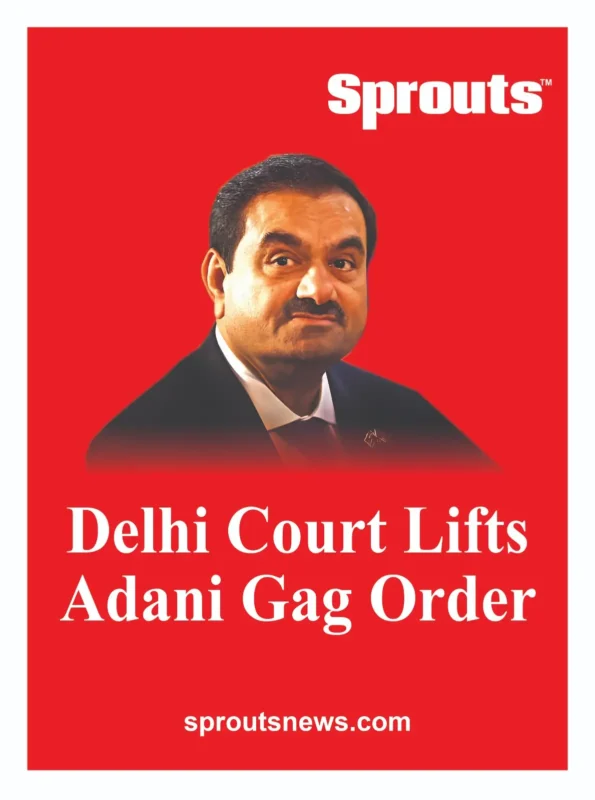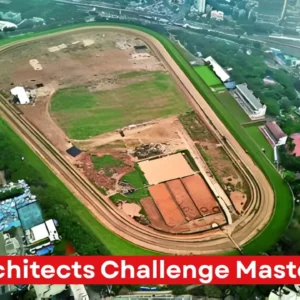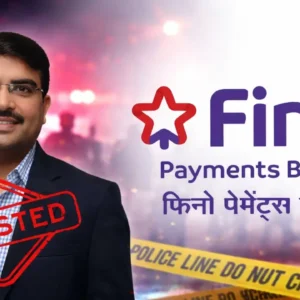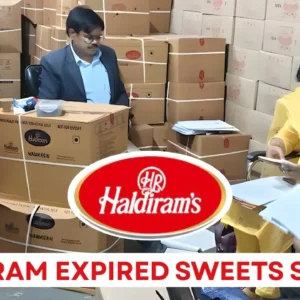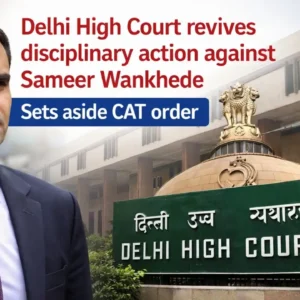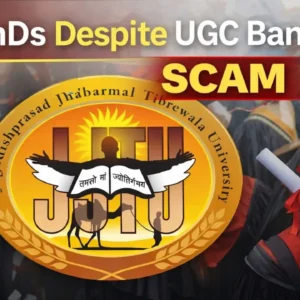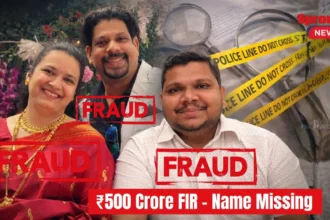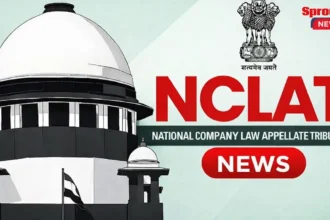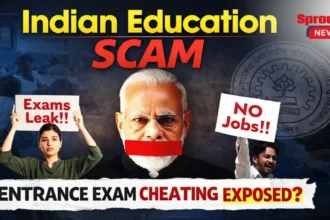Delhi Court Lifts Adani Gag Order
• Journalists Win Against Adani in Court
• Adani Gag Order Overturned: Free Speech Victory
• Court Slams Adani’s Media Censorship Attempt
- Delhi Court Lifts Adani Gag Order
- • Journalists Win Against Adani in Court
- • Adani Gag Order Overturned: Free Speech Victory
- • Court Slams Adani’s Media Censorship Attempt
- Delhi Court Overturns Gag Order in Adani Defamation Case, Upholds Journalists’ Right to Hearing
- Legal Arguments: Jurisdiction, Free Speech, and “Tsunami Orders”
- Adani’s Allegations and Media Freedom Implications
- Broader Context: Pattern of Legal Challenges Against Adani Critics
- A Win for Due Process, But the Legal Battle Continues
A Delhi court overturned a gag order against journalists Ravi Nair, Abir Dasgupta, and others, barring them from publishing stories critical of Adani Enterprises. The court ruled the prior restraint order was unsustainable as it was issued without hearing the defendants. The case continues, but the interim censorship has been lifted.
Click Here To Download the News Attachment
Delhi Court Overturns Gag Order in Adani Defamation Case, Upholds Journalists’ Right to Hearing
In a significant ruling, a Delhi district court has set aside an ex parte gag order that restrained journalists Ravi Nair, Abir Dasgupta, Ayaskant Das, and Ayush Joshi from publishing content allegedly defamatory to Adani Enterprises Limited (AEL). District Judge Ashish Aggarwal of the Rohini Court held that the sessions court failed to grant the defendants an opportunity to be heard before imposing sweeping restrictions, rendering the order “unsustainable.” The decision underscores critical procedural safeguards in defamation suits involving media entities.
The court emphasized that the prior order—which compelled the takedown of articles and videos spanning 2024–2025—ought to have allowed the journalists to present their defense before any injunction was granted. This ruling came in response to appeals filed against the September 6 order issued by Senior Civil Judge Anuj Kumar Singh, which had directed the removal of “defamatory” content and barred further publication.
Legal Arguments: Jurisdiction, Free Speech, and “Tsunami Orders”
During proceedings, Senior Advocate Vrinda Grover, representing the journalists, criticized the plaintiff for securing an ex parte injunction without adequate notice. She termed the directives “over-arching and sweeping,” likening them to a “tsunami order” that suppressed hundreds of pieces of content without specific justification. Grover also questioned the jurisdiction of the court, noting that the articles primarily critiqued Gautam Adani individually, not AEL specifically.
She further alleged that the suit was structured as a “declaration suit” rather than a defamation case to evade the higher burden of proof required under defamation law. Adani’s counsel, Vijay Aggarwal, countered by accusing the journalists of operating with backing from “anti-India interests” and referenced ongoing NIA investigations. The Sprouts News Investigation Team notes that these claims remain unsubstantiated in open court records.
Adani’s Allegations and Media Freedom Implications
Adani Enterprises had accused the journalists of publishing content that damaged its reputation and aligned with “anti-India interests,” specifically targeting infrastructure and energy projects critical to national security. The plaintiff cited articles from portals such as paranjoy.in, adaniwatch.org, and adanifiles.com.au, alleging sustained defamatory campaigns.
However, the defendants contended that their reporting focused on Gautam Adani and the Adani Group as a whole, not AEL specifically—a nuance they argued stripped the plaintiff of locus standi. The court’s decision to set aside the gag order reinforces the necessity for precise legal targeting and due process in cases involving freedom of the press.
Broader Context: Pattern of Legal Challenges Against Adani Critics
This case occurs against a backdrop of similar legal actions initiated by Adani entities against journalists and media platforms. The Sprouts News Investigation Team has identified a pattern wherein ex parte orders are sought to rapidly restrict critical coverage, often before defendants can respond. Judge Aggarwal’s ruling aligns with growing judicial caution against such preemptive censorship.
The court reserved its verdict on a separate appeal filed by journalist Paranjoy Guha Thakurta, indicating that similar principles may apply. Legal experts suggest this ruling could set a precedent for requiring stricter scrutiny and balanced hearings in defamation suits involving corporate plaintiffs and media defendants.
Also Read: NCPCR Issues Binding Order on MP Surgical Exclusion.
A Win for Due Process, But the Legal Battle Continues
While the court’s decision is a temporary victory for press freedom, the underlying defamation suit remains pending. The journalists must still defend the content of their reports during trial, where questions of truth, fair comment, and actual malice will be examined. For now, the ruling affirms that gag orders cannot bypass fundamental principles of natural justice.
This case highlights the tension between corporate reputation management and media freedom in India—an issue likely to influence future litigation involving high-stakes business and investigative journalism.


